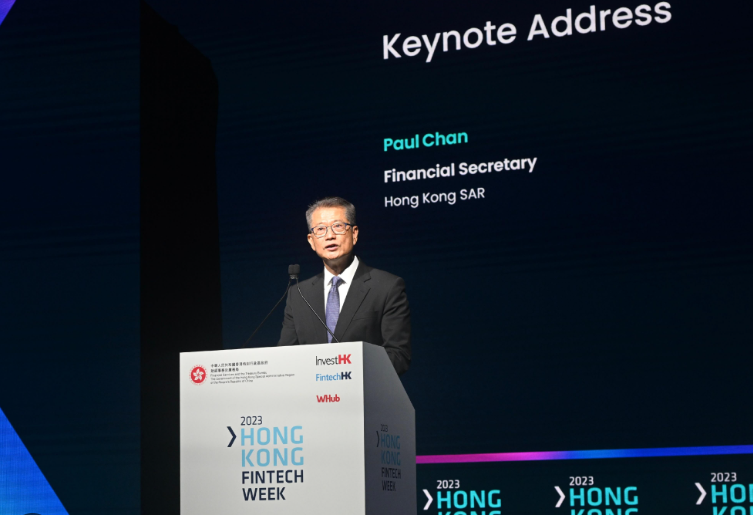Hong Kong’s commitment to Web3 development took center stage at this year’s FinTech Week, signaling a determination to embrace blockchain, tokenization, and central bank digital currencies (CBDCs). The event occurred against the backdrop of the JPEX scandal, which had shaken investor confidence in cryptocurrencies and related assets just six weeks prior. Despite these challenges, government officials and industry leaders have rallied around the Web3 vision, emphasizing the city’s intent to become a virtual asset hub.
The FinTech Week commenced with influential voices in Hong Kong’s financial landscape addressing the audience. Notable figures included Hong Kong Chief Executive John Lee Ka-chiu, People’s Bank of China Deputy Governor Zhong Qingsong, and Hong Kong Monetary Authority (HKMA) Chief Executive Eddie Yue. Their presence underscored the significance of the event and highlighted the commitment of both Hong Kong and mainland China to embrace Web3 technologies.
Last year, Hong Kong aimed to court overseas crypto businesses, but this year, the focus has shifted towards tokenization and cross-border transactions. The aftermath of the JPEX scandal prompted the city to reevaluate its strategies. Secretary for Financial Services and the Treasury Bureau (FSTB) Christopher Hui announced three initiatives to foster fintech development. Two of these initiatives involve the expansion of digital yuan and Web3 technologies, emphasizing Hong Kong’s ongoing commitment to Web3 development.
The Securities and Futures Commission (SFC) released circulars outlining requirements for tokenized securities during the event. This regulatory development opens up retail access to traditional investment products that utilize distributed ledger technology, provided they adhere to specific guidelines. It’s a positive sign that regulators are actively issuing policies related to virtual assets, even after the JPEX scandal, indicating the government’s continued efforts to make Hong Kong a virtual asset hub.
Cross-border payments also took the spotlight at FinTech Week, with the Octopus app enabling users to purchase digital yuan (e-CNY) on the mainland, and Bank of China Hong Kong users being able to top up e-CNY wallets using their bank accounts. The e-CNY plays a vital role in bridging the financial systems of mainland China and Hong Kong, with the mBridge blockchain project facilitating this connection.
Several panel discussions at the event focused on tokenization, particularly the upcoming opportunities for financial institutions to offer new blockchain-based assets. Traditional financial institutions are expected to benefit from this shift, as new types of assets that were previously unattainable with traditional securities become a possibility.
One area of significant interest in tokenization is real estate, with the HKMA’s e-HKD trial involving Ripple and Fubon Bank exploring the use of a digital Hong Kong dollar for granting home equity lines of credit on a blockchain.
Despite the enthusiasm surrounding Web3 development, the need for robust regulation is evident. The recent example of the JPEX scandal has highlighted the importance of regulatory reforms in the crypto space. Suggestions for the legislative council include reforming regulations on over-the-counter (OTC) cryptocurrency shops and custodian service operators, while enforcement agencies should regulate OTC services, especially those involving virtual asset transactions.
Hong Kong’s commitment to Web3 development remains strong, with government officials and industry leaders rallying around the cause despite recent challenges. The shift towards tokenization and cross-border transactions, along with regulatory progress, underscores Hong Kong’s determination to become a hub for virtual assets. While challenges and regulatory reforms lie ahead, the future of Web3 in Hong Kong appears promising, and the city’s dedication to innovation remains unwavering.
(Source: Matt Haldane | Xinmei Shen | SCMP)









